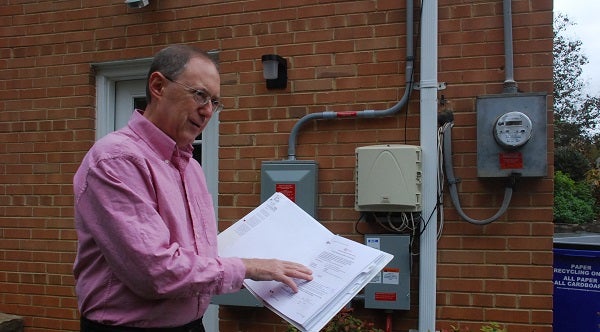Going solar in Texas without net metering

When your solar array generates more power than your home needs, the excess electricity is sent out through your electric meter to your neighbors. In most places, you receive a credit for this electricity through a system known as net metering. The credit you receive from net metering lowers your monthly electric bill and helps you recoup your investment in solar. Net metering is not available to most Texas homeowners. This poses a challenge for Texas homeowners who want to go solar.
Texas’ deregulated utility market
In order to understand why net metering is not available to most Texans, it’s necessary to understand the state’s unique energy market. While there are many different ways electricity is delivered, most people get their electricity from a regulated utility. In this model, the electricity service provider is a privately-owned company that is granted a monopoly to serve a specific service area. An elected or appointed board regulates the company in exchange for giving the company its monopoly. The board sets the rate the utility can charge customers and sets other rules for the company’s behavior.
Before the 1990s, this is the system by which most Texans got their electricity. Then, the state decided to deregulate. It separated the responsibility of delivering the electricity from the sale of power.
As a result, about 70% of Texas consumers have the ability to shop for their electricity company. These companies are called retail electricity suppliers (REPs). There are more than 100 such companies serving Texas. Unlike traditionally regulated utilities, REPs can set whatever price they want for electricity. They can also choose — or in most cases, not choose — to offer a solar buyback plan. This buyback plan serves as an approximation of net metering with terms set by the REP.
Options for Texas homeowners
To date, only four REPs, Green Mountain Energy, MP2 Energy, TXU Energy, and Reliant Energy offer any sort of credit to customers with solar. Of these, Reliant Energy, Green Mountain Energy, and MP2 credit customers at the full retail rate. The longest contract Reliant Energy offers is 12 months. MP2 zeroes out customers’ bills at the end of each year meaning that any excess credit you have accrued will expire.
Without net metering, it doesn’t make financial sense for your system to generate that you don’t use yourself, since you aren’t credited for it. As a result, most home installations in Texas are sized much smaller than elsewhere. Alternatively, you could opt to store that excess electricity in a battery. (Click here to check out our guide to battery storage.)
Texas’ move to a deregulated market was made with the hope that a competitive market would lower costs through competition. A similar dynamic could play out with solar, as more Texas homeowner express an interest to go solar. Growing demand for solar could incentivize more REPs to offer better and longer contracts to solar customers. Long term contracts are beneficial because they provide certainty on your return on investment for going solar.
